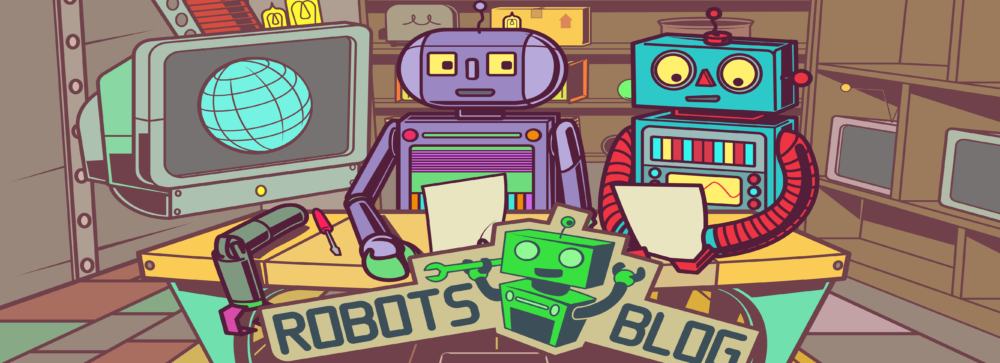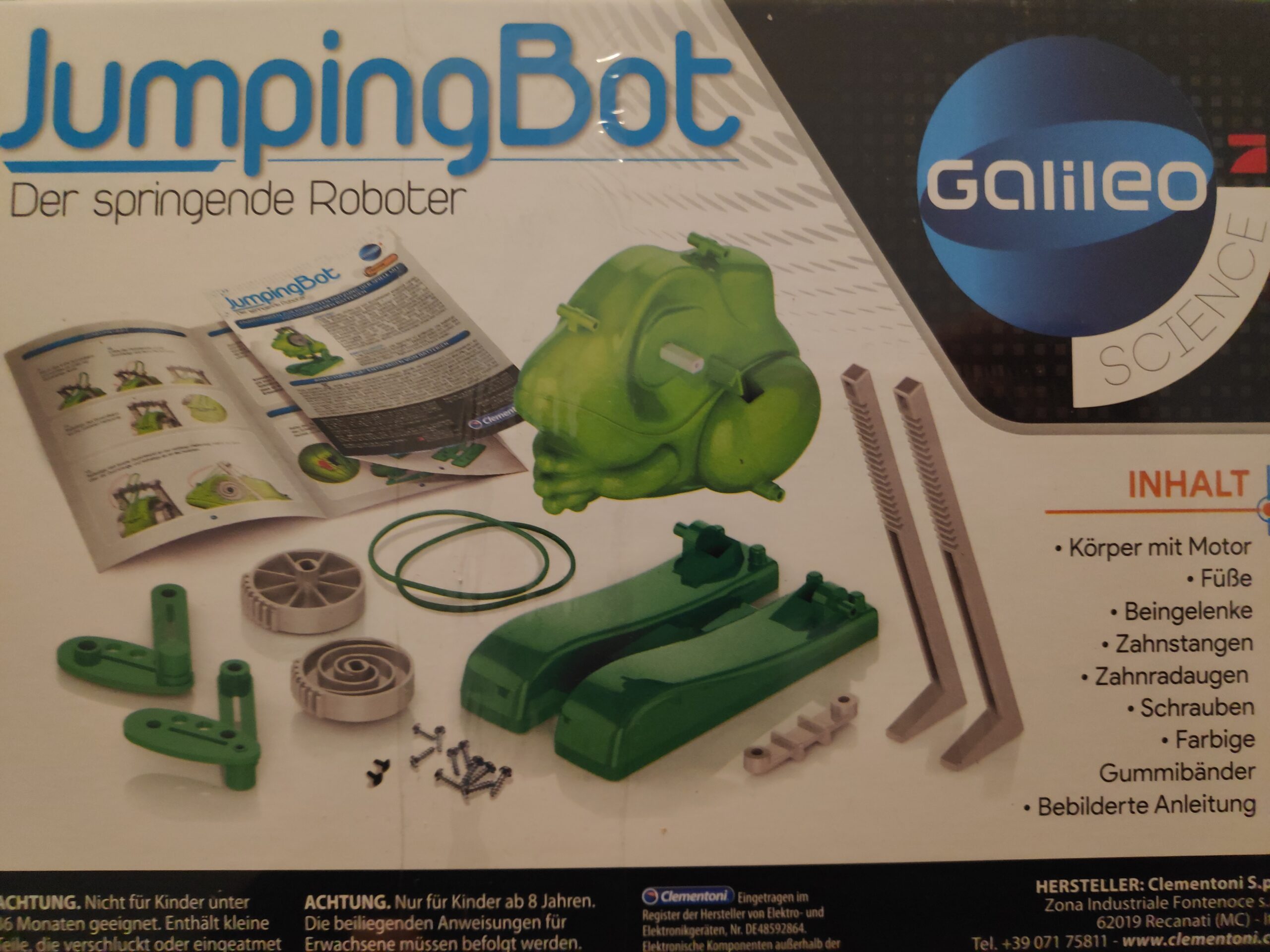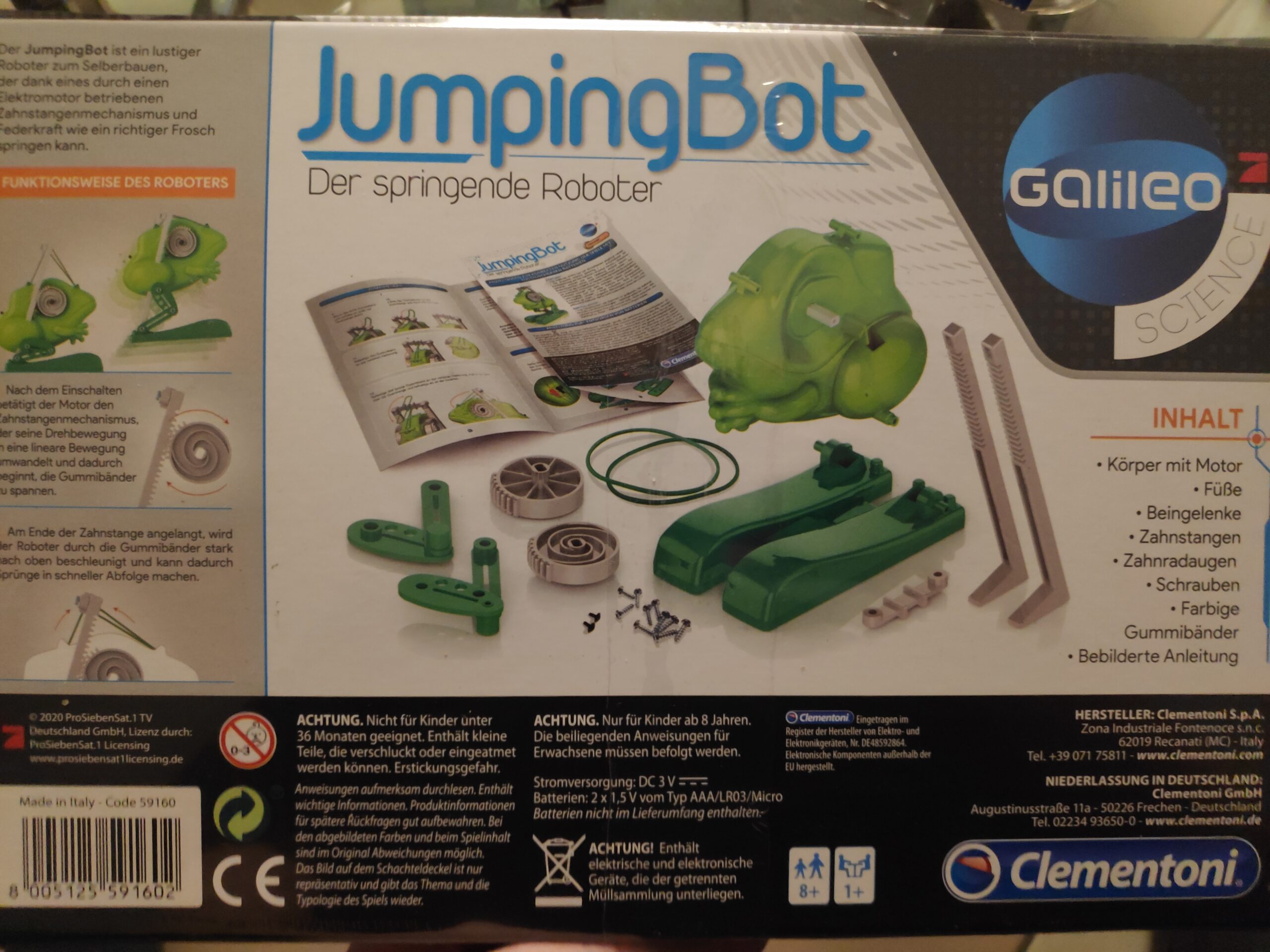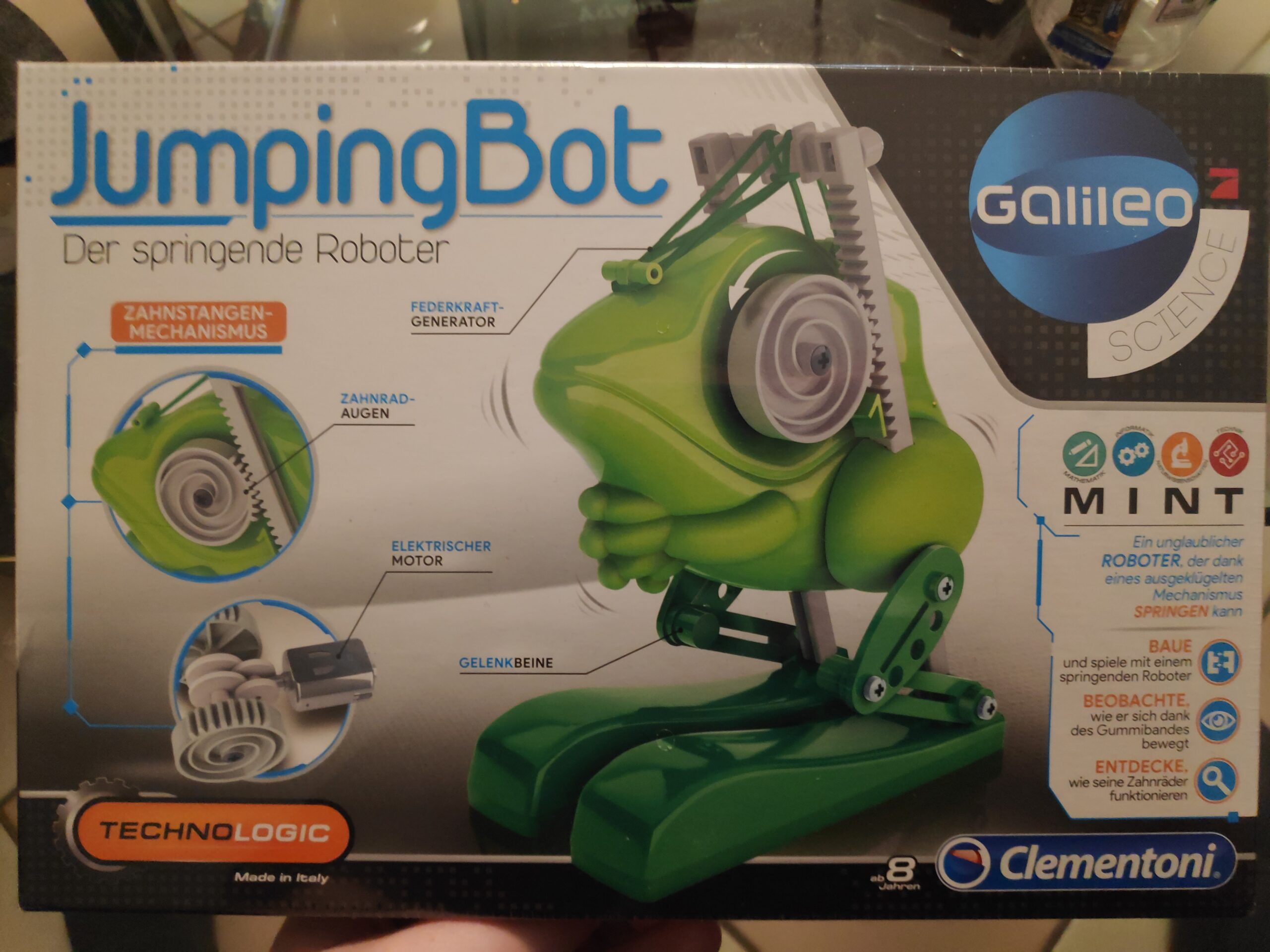Clementoni Galileo JumpingBot. Another robot frog? 😍 Find the latest News on robots, drones, AI, robotic toys and gadgets at robots-blog.com. If you want to see your product featured on our Blog, Instagram, Facebook, Twitter or our other sites, contact us. #robots #robot #omgrobots #roboter #robotic #mycollection #collector #robotsblog #collection #botsofinstagram #bot #robotics #robotik #gadget #gadgets #toy #toys #drone #robotsofinstagram #instabots #photooftheday #picoftheday #followforfollow #instadaily #clementoni #galileo #jumpingbot #robotfrog #frog #MINT
Schlagwort-Archiv: STEM
Cody Block, a new Montessori inspired coding toy
Cody Block is centered on a little wooden car called Cody that has to find its way home through 16 Building Blocks which act as commands. The task for children is to lay out a path that leads Cody back to his house by positioning the Building Blocks in the correct order.
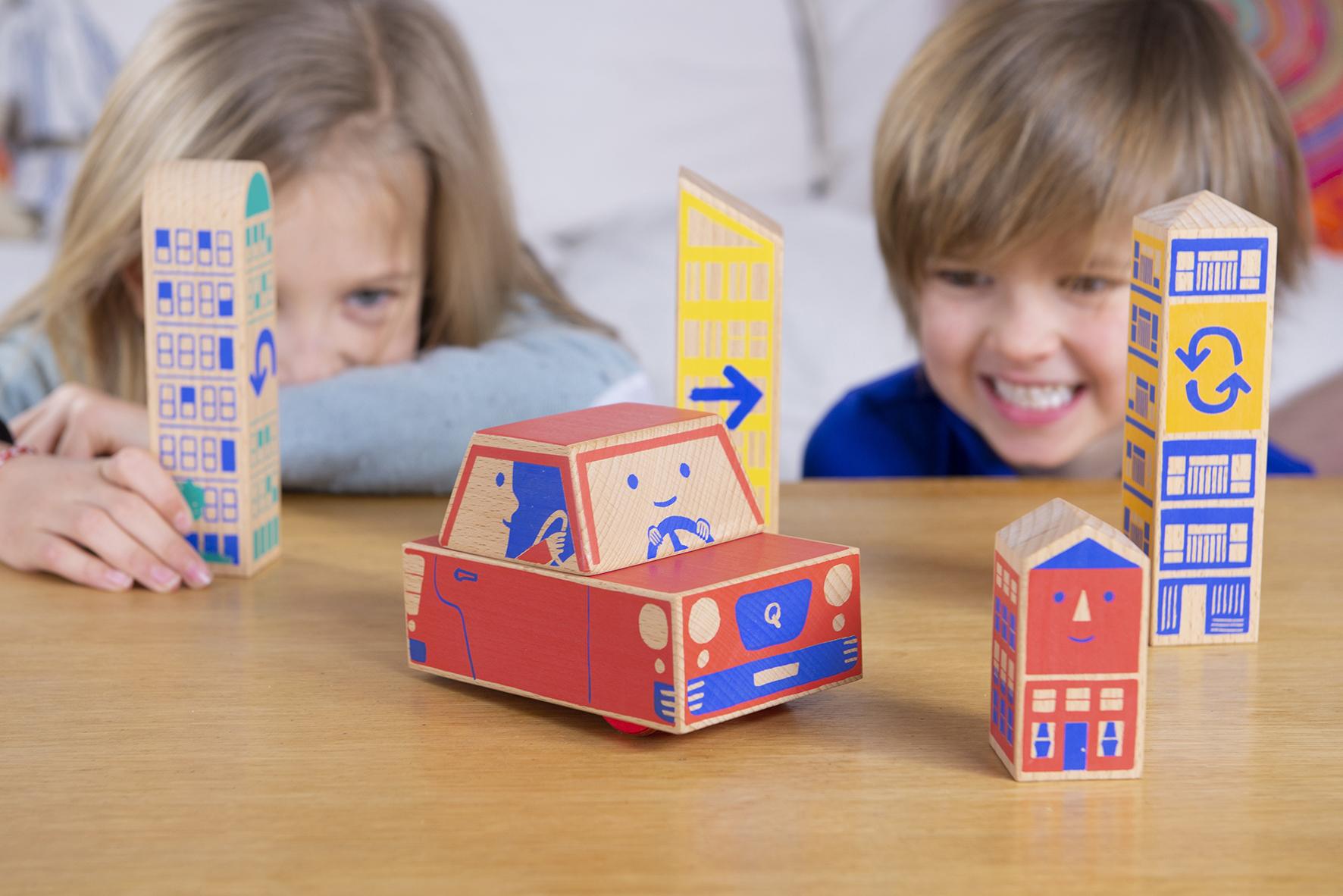
Children put Cody at the starting point and watch as the electronic car moves through the Building Blocks. Each of the Blocks gives a unique directional command to the car through
RFID tags.
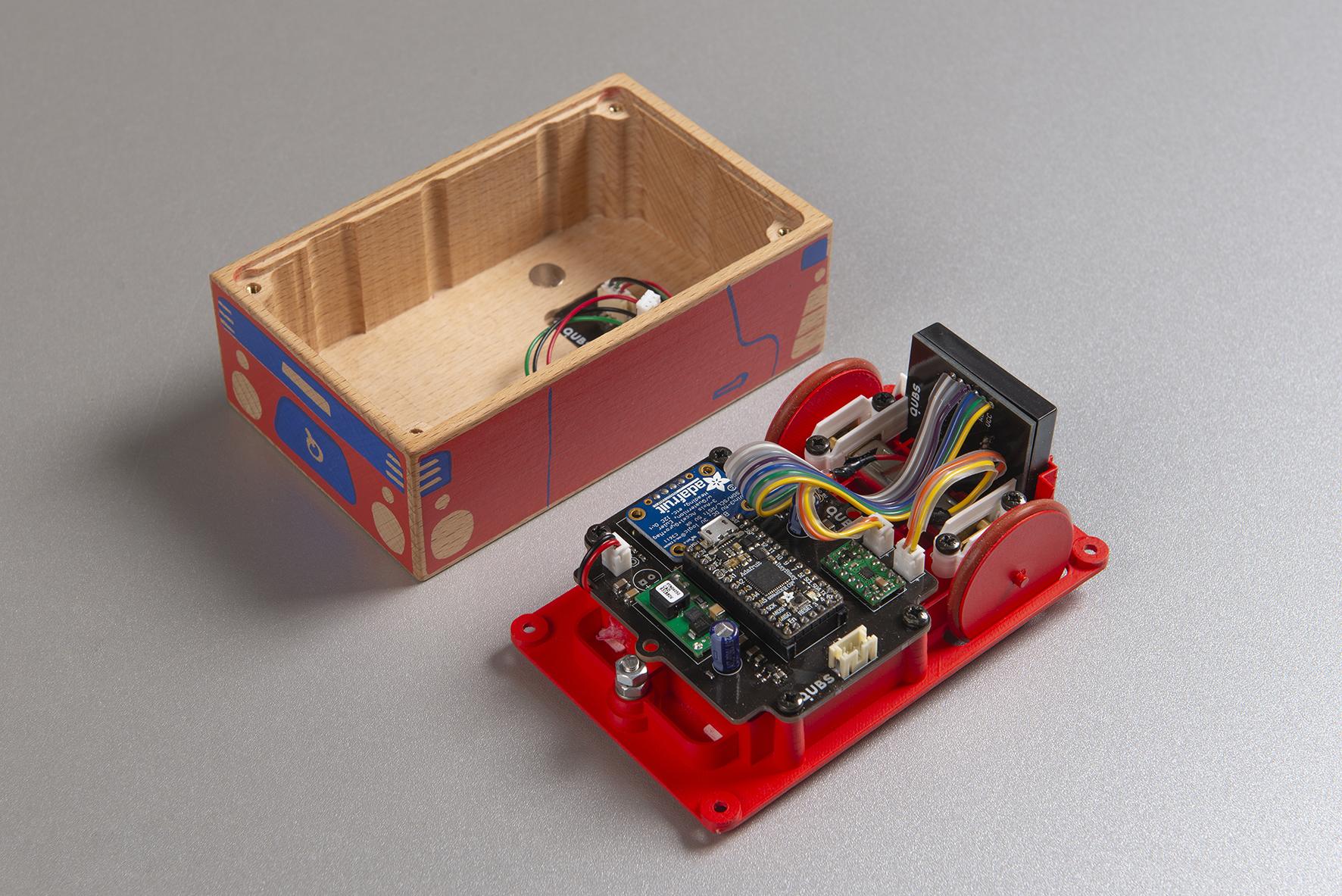
Cody will follow the sequence of instructions provided by the Blocks and – if the blocks are arranged correctly – make it to his goal. If not, children have to figure out how to rearrange the blocks in order to fix the sequence and help Cody get home.
The patented RFID technology embedded in every wooden block allows children to play with
Cody for hours without the need of any smartphone, laptop or screen. The design of Cody Block takes its inspiration from classic wooden toys and the Montessori philosophy in its material and shape: solid beech wood and intuitive design.
Cody Block provides gender-neutral play that stimulates a child’s critical thinking, creativity, problem solving abilities and resilience.
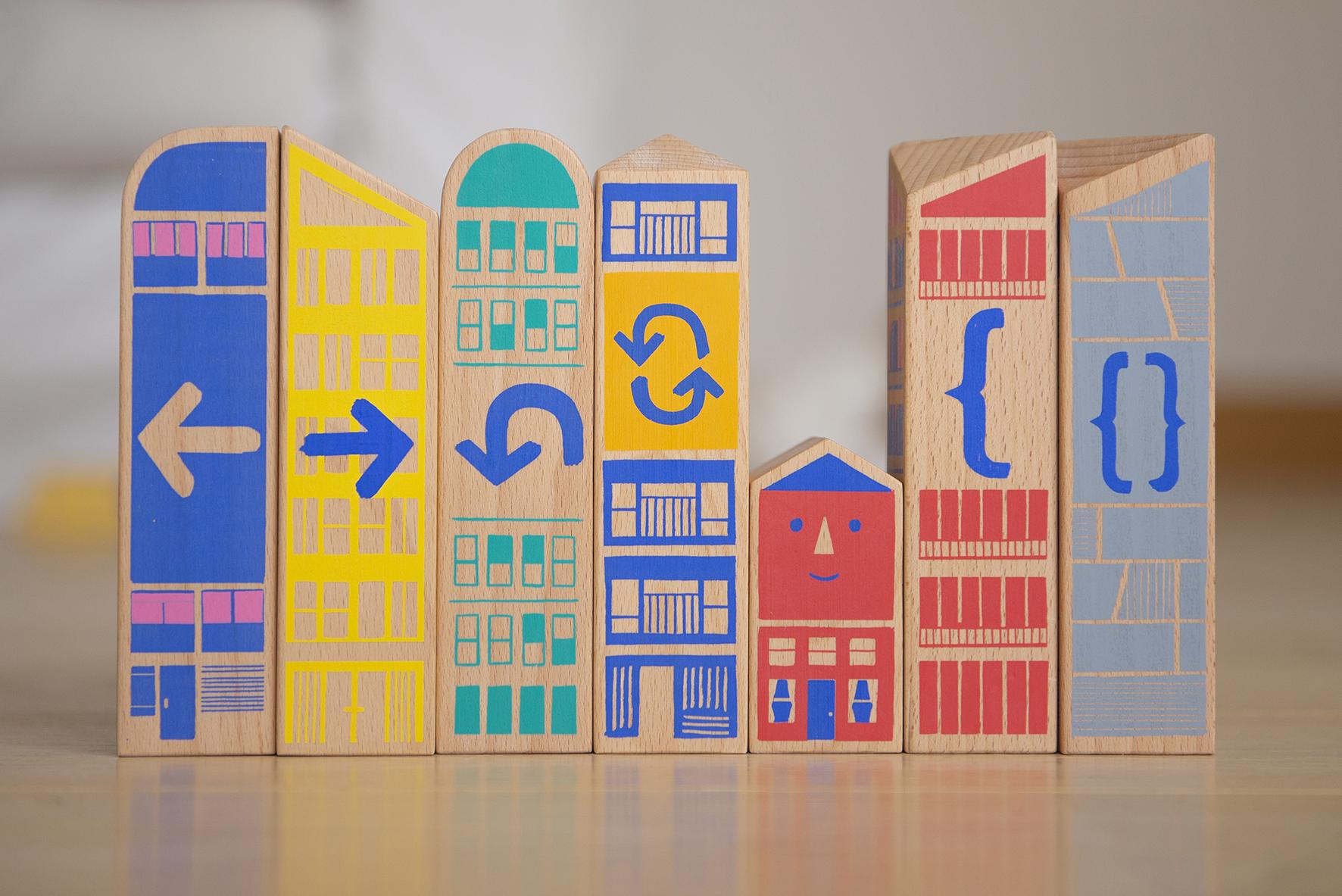
QUBS and Cody Block was started by Hayri Bulman, a Swiss IT entrepreneur and father of 2 children. In 2016, Hayri started exploring how to bring technology and classic wooden toys together to help his children learn the basics of coding through play. After prototyping a number of concepts at home which incorporated RFID technology inside of wooden blocks he brought together a team of designers, engineers and illustrators to launch Cody Block.
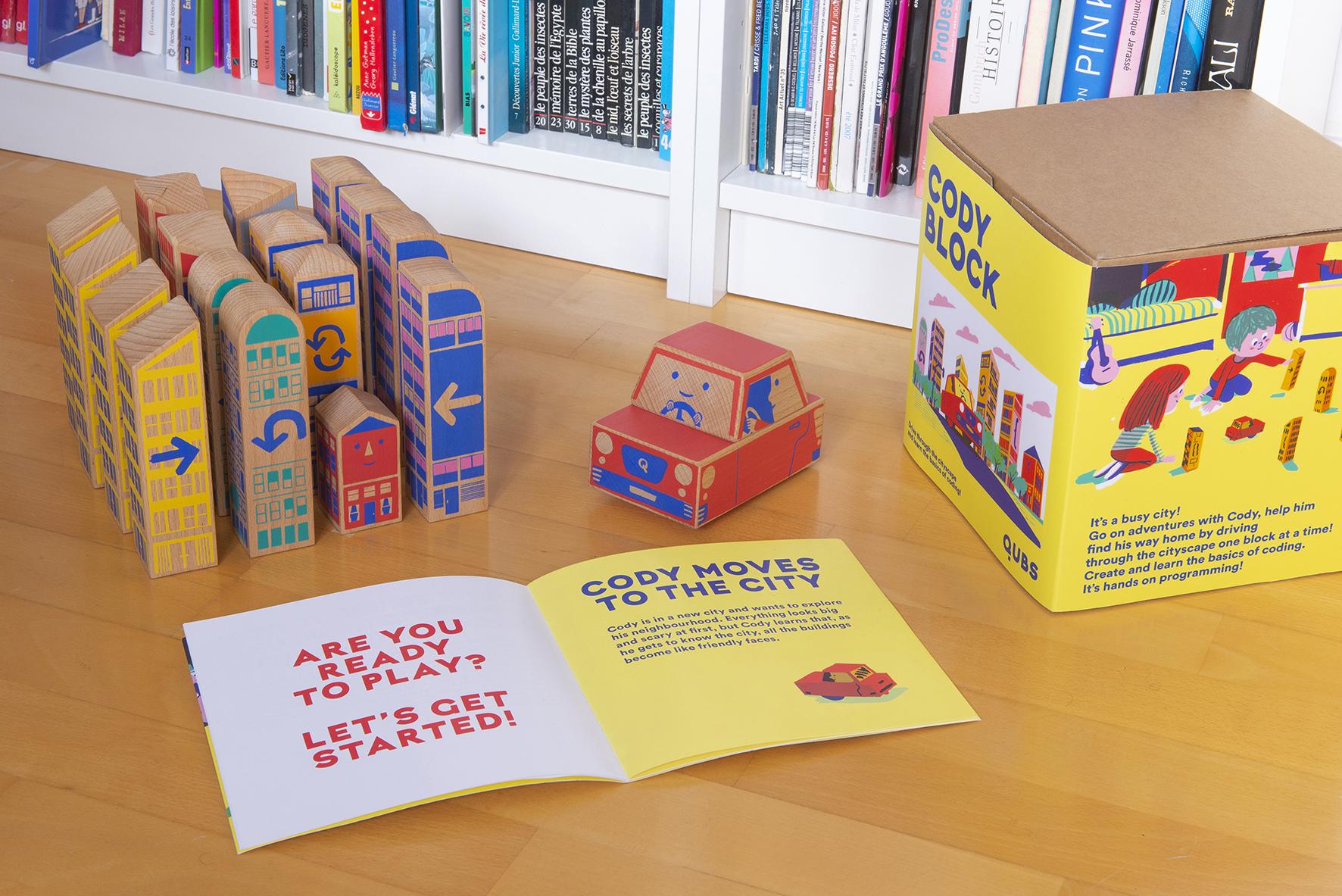
Hayri wanted to bring Cody Block to the market because he is convinced that by enabling kids to gather new skills through play, we encourage the next generation of innovators, tinkerers, creators and makers of the future.
“My aim is to create a toy that blends classic wooden toys with electronics and helps kids navigate this increasingly digital world. There are thousands of wooden toys and there are thousands of electric toys but with Cody we can bridge these two very far worlds together, and close the gap between them,” said Hayri Bulman, founder of QUBS.
“I want to bring children closer to coding, a very essential skill for the future. I hope Cody Block will help them understand how to think and problem solve, all of this while having fun. I believe children will play with Cody Block in many different ways, more than we can ever imagine.”
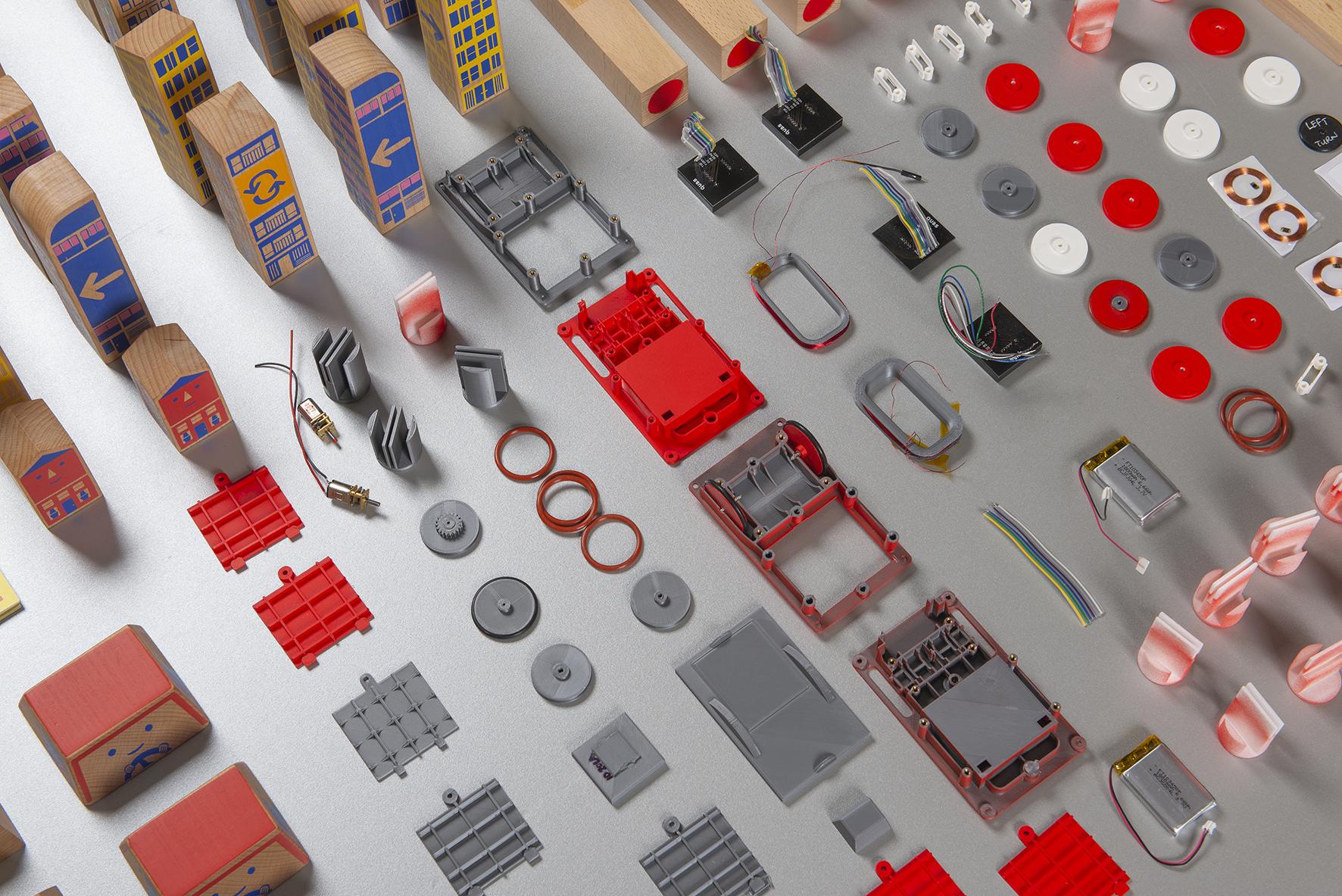
Cody Block is being launched at a time when coding and STEM subjects are getting more attention both from the education system and from parents.
“The ability to solve problems is a skill that is useful in life in general, we all want our children to become excellent problem solvers, so that they can overcome any adversity they face. Learning code gives children the possibility to learn this type of skills while they’re young, and this will give them advantage in life. Cody Block is the perfect way for them to play and learn at the same time,” said Bruce Lamont, a primary school teacher and Lead Teacher with 32 years of experience in the field.
“Cody Block helps children develop a way of thinking and how to find creative and logical solutions to problems, skills that are really looked for in education nowadays.”
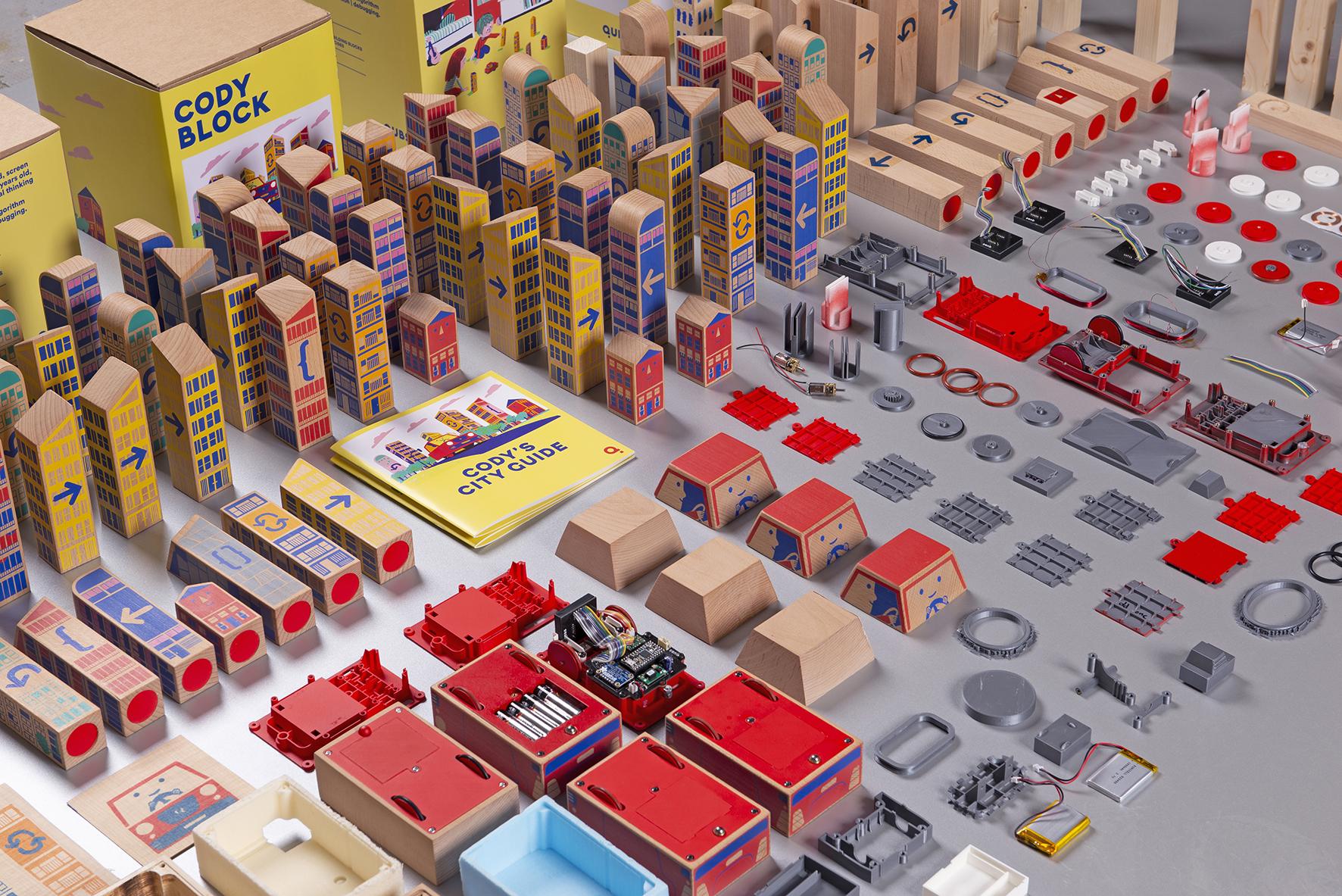
The basic pack includes Cody (the car), 16 Building Blocks, and a City Guide with exercises.
Additional educational discounts will be available for classroom packs of 5 and 10 sets.
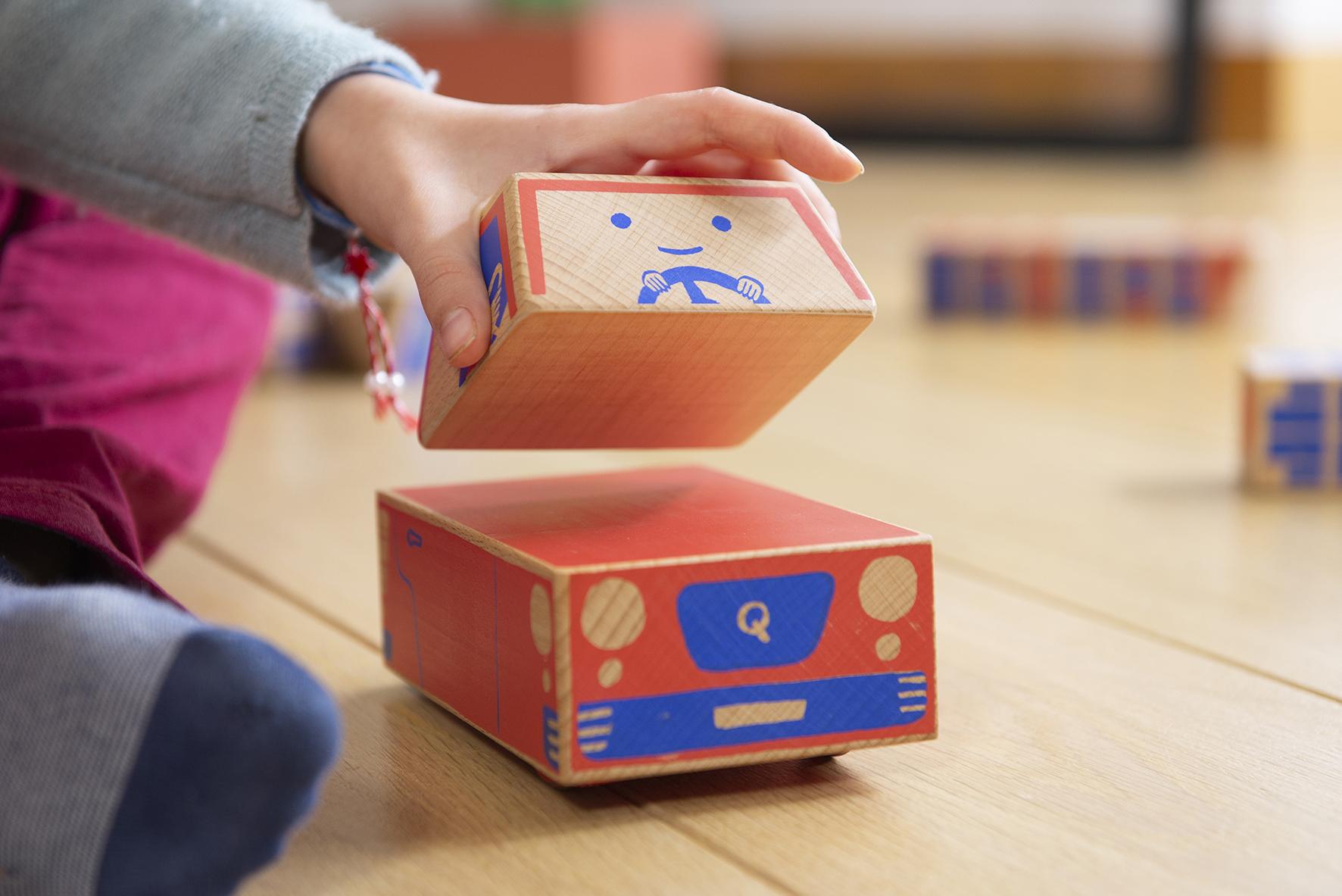
About QUBS
QUBS AG is a Swiss company based in Zurich and founded by Hayri Bulman, a father of 2 children and with a passion for wooden toys and new technologies. QUBS is the only toy maker that merges classic designs and screen-free technology in early years learning.
QUBS’ mission is to empower children to explore the learning world in a fun and accessible way. The company makes wooden toys that are loved by children and trusted by parents & educators. By enabling kids to gather new skills through play, QUBS aims to encourage the next generation of innovators, tinkerers, creators and makers of the future.
www.qubs.toys
Robo Wunderkind: Programmieren lernen, spielerisch wie nie zuvor
Wien, September 2020 – Ab heute lassen sich die neuen Roboter-Kits für zu Hause und für die Schule von Robo Wunderkind vorbestellen. Die Roboter-Sets des innovativen EdTech-Unternehmens aus Wien fördern spielend die kognitiven Fähigkeiten und die Problemlösungskompetenz von Kindern ab 5 Jahren. Dadurch erwerben Kinder bereits in jungen Jahren wertvolle Skills, die den Grundstein für den späteren Ausbau ihrer MINT-Fähigkeiten legen und ihre Erfolgschancen im weiteren Leben erhöhen.
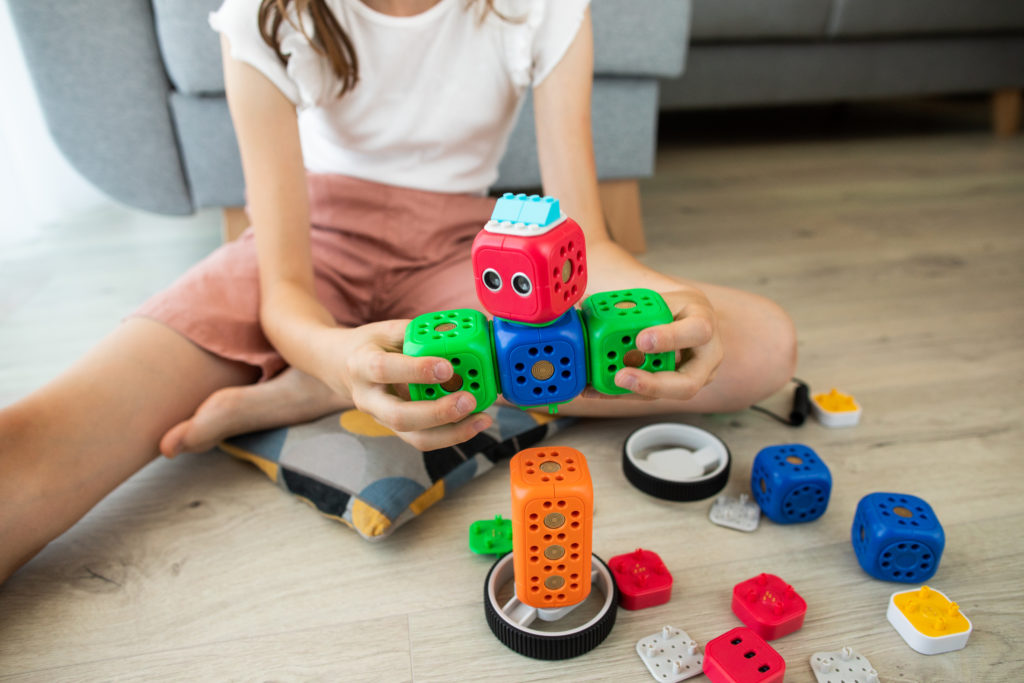
Spielend den Entdeckergeist wecken
Die Roboter-Sets bestehen aus mehreren dreidimensionalen Modulen, die Kinder zu verschiedensten Strukturen, wie Leuchttürmen, Figuren oder Autos zusammensetzen können. Dabei sind der Kreativität der Kinder keine Grenzen gesetzt, da die Roboter-Kits auch mit LEGO Technic-Teilen kompatibel und damit beliebig erweiterbar sind. In Kombination mit den Apps von Robo Wunderkind fördern die Roboter-Sets das räumliche Denken, die Problemlösungskompetenz und die kognitiven Fähigkeiten von Kindern. Diese Skills sind entscheidend für die spätere Weiterentwicklung von MINT-Fähigkeiten. Mit den Roboter-Kits und Apps von Robo Wunderkind können Eltern und Lehrer somit spielend die Grundlagen für den späteren Erfolgs ihrer Kinder und Schüler legen.
Für die neuen Roboter-Kits Explorer Lite, Explorer Prime und Explorer Pro hat Robo Wunderkind die Vorgängerversionen umfassend analysiert und anhand von Kundenfeedback zahlreiche Verbesserungen vorgenommen. So sind die einzelnen Module der Roboter-Sets aus robusteren Materialien gefertigt und die Seiten wurden abgeflacht, damit Kinder mit ihren Teilen von Lego Technic noch leichter kreative Konstruktionen und Ideen entwickeln können. Die zusätzlichen Module bieten eine verbesserte Haptik und noch mehr Platz, um die verschiedenen Sensoren anzuschließen. Mit der dritten Generation der Roboter-Kits präsentiert Robo Wunderkind die Robo Blocky App, um weitere Möglichkeiten zur Weiterentwicklung von Programmierfähigkeiten zu schaffen. Die App ermöglicht es Kindern, sich mit nur einem Roboter-Kit von der einfachen Fernsteuerung bis hin zur komplexen, block-basierten Programmierung vorzuarbeiten. Damit finden Kinder jeden Alters Aktivitäten und Aufgaben, die ihren Interessen, Vorlieben und Kompetenzen entsprechen.
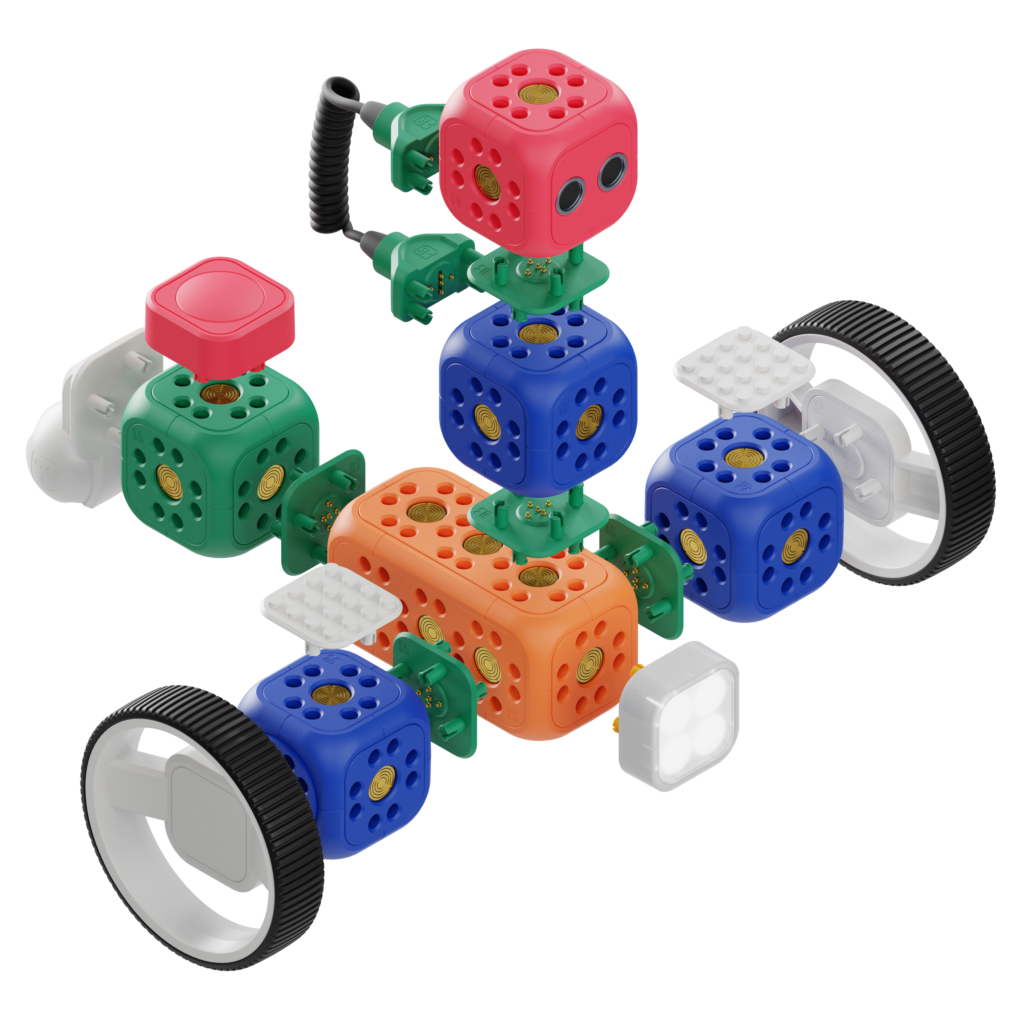
Kinder – die Programmierer und Entwickler der Zukunft
Das Besondere am Ansatz von Robo Wunderkind: Das Unternehmen verknüpft die physischen Spielzeug-Module mit Apps, über die sich die Roboter programmieren lassen. Insgesamt stehen drei Applikationen für Smartphones und Tablets zur Verfügung: Robo Live, Robo Code und Robo Blockly. Darüber können Kinder die von ihnen gebauten Roboter so programmieren, dass sie beispielsweise beim Umherfahren bei einem bestimmten Abstand zu einem Objekt stehen bleiben. Alternativ können Kinder die Lichtaufsätze so steuern, dass sie je nach Abstand zu einem Gegenstand in verschiedenen Farben leuchten.
Über die App lernen Kinder also spielend erste Programmierfähigkeiten. Das fördert nicht nur Technik-Skills, sondern weckt ihre Begeisterung für entsprechende Aufgaben. Die Roboter Kits von Robo Wunderkind setzen bei der Entwicklung von Kindern also auf zwei Komponenten. Der physische Aspekt, das Zusammenbauen der Module, fördert die kognitiven Fähigkeiten, während Kinder durch die Kombination mit der Software-Komponente zudem wertvolle technische Skills und Problemlösungskompetenzen erwerben. Mit diesem Ansatz erlernen Kinder mit Spaß Fähigkeiten, die für ihren Erfolg im weiteren Leben entscheidend sind. Mit den Roboter-Kits von Robo Wunderkind wächst die nächste Generation an Programmierern und Entwicklern heran.
Über Robo Wunderkind
Robo Wunderkind ist ein EdTech-Unternehmen mit Hauptsitz in Wien/Österreich und hat bereits Anwender in über 60 Ländern. Das innovative Start-Up-Unternehmen hat es sich zum Ziel gesetzt Kinder zu inspirieren, damit sie durch Technologie kreativ sein können. Schon ab 5 Jahren können Kinder mit den Roboter-Kits von Robo Wunderkind ihre eigenen Roboter und Gadgets bauen und programmieren.
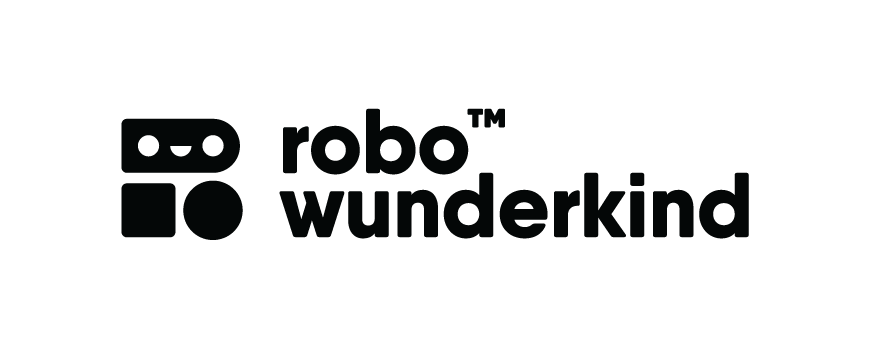
Das österreichische Unternehmen erarbeitet mit Experten und Lehrern Unterrichtspläne, die es erleichtern die Roboter in den Vorschul- und Schulunterricht zu integrieren und so die MINT-Fähigkeiten von Kindern zu entwickeln und auszubauen. Robo Wunderkind ist bereits in mehr als 500 Schulen im Einsatz und kooperiert mit ausgewählten europäischen Non-Profit-Organisationen wie SSPCA, Get Your Wings, Digitale Wolven. Das Unternehmen startete außerdem die Initiative Robo Makers Marathon für das den Unterricht zu Hause. Hunderte von Kindern und Eltern auf der ganzen Welt nahmen an Webinaren und Online-Aktivitäten teil und lernten so, bequem von zu Hause aus zu programmieren.
Weitere Informationen erhalten Sie unter: www.robowunderkind.com/de
World’s First Palm-sized, Trick Playing Robot Dog Petoi Bittle Launches on Kickstarter
On August 24, Petoi Bittle launches on the crowdfunding site Kickstarter. Starting from $195 for the early bird special, Bittle is the first affordable robot dog for coding and fun.
Petoi hopes to raise $50,000 to bring the agile quadruped robots to makers and STEM communities. The fund was fulfilled in one day and was doubled in three days. It reaches $128,000 on the fourth day.
Kickstarter URL:
https://www.kickstarter.com/projects/petoi/bittle/
Petoi Bittle is a tiny but powerful robot that can play tricks like real animals. It is compact, agile, accessible, and seamlessly designed. We fine-tuned every bit to fit agile maneuverabilities into a palm-sized robot pet. You can bring Bittle to life by assembling its puzzle-like frames, running our demo codes, and injecting new skills with your own codes. Bittle makes a perfect tool for learning, teaching, and researching, or a surprising gift to impress your family and friends.
Rz Li, the founder of Petoi, explains: „Building on the success of our first robot cat project Petoi Nybble on Indiegogo in 2018 and feedback from our worldwide user community, we’ve designed Bittle to be more durable, agile and extensible. Bittle moves with four legs rather than wheels. Legged motion gives it more freedom to navigate unstructured terrains, and expresses the joy of life whenever it moves. Such dynamic maneuverability and behaviors were only seen on a few luxury robots from the best labs or tycoon companies previously. „
Evolving with an open-source gene, Bittle is an open platform to fuse multiple makers‘ gadgets into one organic system. With our customized Arduino board coordinating all instinctive and sophisticated movements, you are free to clip on various sensors to bring in perception and inject artificial intelligence capabilities. You could also mount a Raspberry Pi or other AI chips through wired/wireless connections for higher-level functionalities.
Bittle is a compact system of five major components: body frame, actuator, electronics, battery, and the software to coordinate all the hardware to perform varied tasks. More details are covered on their Kickstarter page.
Deliverables:
Plastic body parts
10× P1S Servo
Rechargeable 7.4V Li-ion battery pack
NyBoard V1
Bluetooth and WiFi dongle
Various sensors that can be held by the mouth of the robot dog
Open-source software: the OpenCat program
The kit starts at $195 for the Early Bird adopters.
For more information, please visit Petoi’s website.
About Petoi LLC
OpenCat started as the founder Rz Li’s pet project in 2016. After the demo video went viral in 2018, he devoted all his time and resources to bring this sophisticated and cute robot to the public. He founded Petoi and successfully crowdfunded the Nybble project in 2018. All the earnings have been put into the fulfillment of Nybble and the R&D of Bittle.
Our mission is to bring affordable robotic pets from fiction to reality. We grew from a single maker to a company that can collaborate and negotiate with manufacturers to get the best solutions to our needs. We have many more cool ideas in mind, and Bittle is another small step towards our ideal shape of household robots.
Sphero® Launches the ‘Sphero Global Challenge’, the Company’s First Annual International Robotics and Design Competition
Sphero, the industry leader in edtech programmable robots and STEAM-based educational tools, announced today that registration for the Sphero Global Challenge, its first robotics, invention and design competition for kids around the world, is now open.
Robotics competitions are a unique opportunity for kids, and are designed not only to focus on the technical proficiencies gained through programming and coding but also to build on the important ‘soft skills’ kids gain through STEAM.
BOULDER, COLO. (PRWEB) AUGUST 25, 2020
Sphero, the industry leader in edtech programmable robots and STEAM-based educational tools, announced today that registration for the Sphero Global Challenge, its first robotics, invention and design competition for kids around the world, is now open.
The Sphero Global Challenge is the ultimate STEAM competition and an opportunity for kids to go deeper with computational thinking, engineering, and programming skills. Teams of all abilities are encouraged to work together to identify problems and develop solutions in different, real-world scenarios. Through this challenge, kids will work to accomplish their goals in various events that they will submit virtually to qualify for the Sphero World Championship in Spring 2021.

“We’re excited to offer a robotics, invention and design competition that highlights Sphero’s dedication to collaborative STEAM learning from anywhere in the world,” says Paul Copioli, Sphero CEO. “Robotics competitions are a unique opportunity for kids, and are designed not only to focus on the technical proficiencies gained through programming and coding but also to build on the important ‘soft skills’ kids gain through STEAM, such as collaboration, communication, creativity, and critical thinking.”
TAKE FLIGHT WITH THREE UNIQUE STEAM EVENTS
The Sphero Global Challenge comprises three unique events. Teams can compete in one event or up to all three with one $75 USD registration fee.
littleBits Invent 4 Good: Mission Earth
Use littleBits and their Invention Cycle to solve problems facing the Earth right now. Kids will unleash their inner engineer as they invent a solution to an issue of their choice. In this event, kids can practice collaborating and innovating as they tackle a real-world problem.
BOLT: Space Mission
Take flight in the BOLT Space Mission. During this event, kids can put their programming and engineering skills to work as they navigate through five challenges. Not only is this an opportunity to build STEAM skills, but it’s also a chance for them to collaborate, solve problems, and create.
RVR + littleBits: Mars Mission
In RVR + littleBits Mars Mission, kids can use their coding and engineering skills to complete five challenges. Throughout this event, they’ll have opportunities to build their collaboration, problem-solving, and critical thinking skills as they work to reach solutions.
GEAR UP FOR THE CHALLENGE
In conjunction with the Sphero Global Challenge launch, new competition-ready Sphero and littleBits products are now available to make getting started in the competition even simpler.
New: littleBits STEAM+ Class Pack
The littleBits STEAM+ Class Pack is the ultimate STEAM learning toolkit, containing 240 Bits, 10 newly designed durable storage containers, printed teacher support materials and 40+ standards-aligned lessons to engage the entire class.
New: littleBits STEAM+ Kit
The littleBits STEAM+ Kit contains 24 Bits, a newly designed durable storage container, printed teacher support materials, and 40+ hours of standards-aligned lessons to engage up to four students at a time.
New: Sphero Code Mat – Space & Soccer
This two-sided activity mat, with new Space & Soccer themes, offers a simple, accessible way to learn block-based coding, basic math principles, and collaborative problem-solving with any round Sphero robot. The new Code Mat comes with three sets of 10 double-sided coding cards that provide guided, hands-on coding lessons.
New: Sphero RVR littleBits Topper Kit
Sphero RVR + littleBits Topper Kit combines the best of Sphero with the best of littleBits in an easy, approachable kit that allows a user to fully utilize RVR’s onboard capabilities with littleBits adaptability to create unique inventions.
New: Sphero Craft Pack
A one-stop-shop for all the crafting accessories needed for Sphero Global Challenge projects. With over 31 different items and hundreds of materials, the Craft Pack was designed with both Sphero robots and littleBits in mind.
TAKE THE CHALLENGE HOME
The Sphero Global Challenge is committed to inspiring the creators of tomorrow, wherever that might be, even in blended, remote, or at-home learning scenarios. Learn more about resources and opportunities for solo teams or virtual meetings to complete the Sphero Global Challenge during the COVID-19 pandemic in our Sphero Global Challenge at-home guide.
To learn more about the Sphero Global Challenge and how to register a team, please visit https://sphero.com/pages/global-challenge.
ABOUT SPHERO:
Sphero inspires the creators of tomorrow through remarkably cool, programmable robots, electronic building blocks, and educational tools that transform the way kids learn and create through coding, science, music, and the arts. Sphero goes #BeyondCode and drives kids to turn their imagination into reality. The skills kids unlock through play-based learning prepare them to thrive, no matter what subject or career they pursue. Based in Boulder, CO, Sphero has become the #1 STEAM-based learning solutions company, loved by millions of parents, kids, and educators worldwide. Learn more at sphero.com.
4M KidzRobotix Dragon Robot
4M KidzRobotix Dragon Robot, the newest addition to our collection. See pictures, timelapse build and a short video below.









Find it on Amazon:
CircuitMess STEM Box – Learn the skills of the future with electronic projects delivered to your doorstep
Technology has become an integral part of our lives, but just a small number of people on the planet actually have the tools, access, or knowledge to create new technology. CircuitMess is here to change that with the STEM Box .
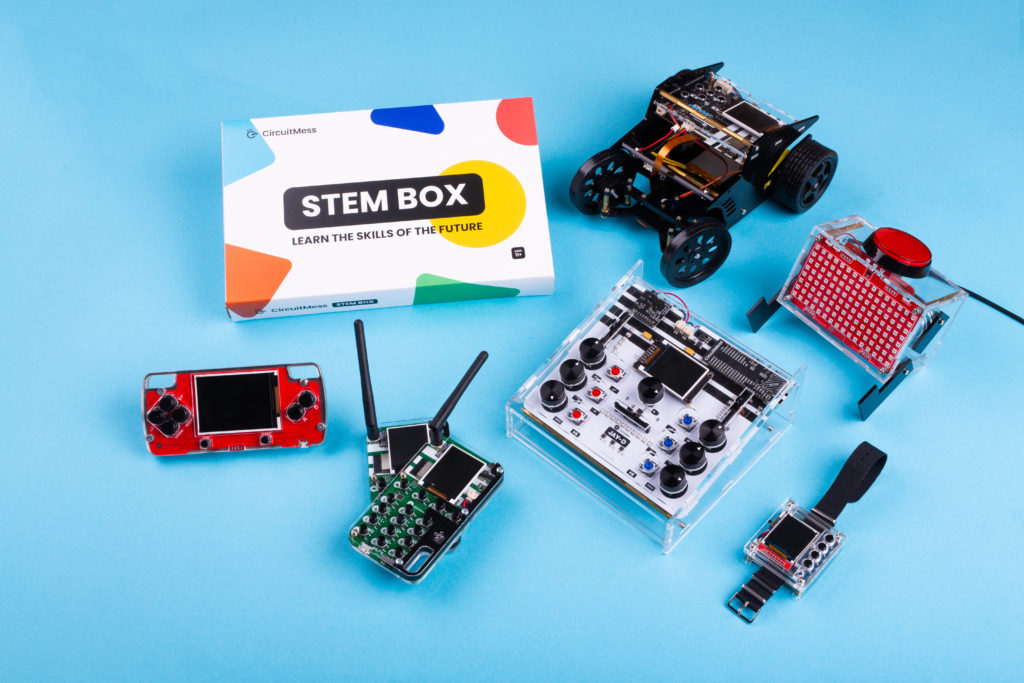
CircuitMess STEM Box is a unique learning experience that will teach you the skills of the future. Autonomous driving, Sound synthesis, Voice Recognition, Wireless communication, Gaming, and Machine learning – these are just some of the topics you’ll learn about with STEM Box. Every three months, you’ll get a new interesting product based on a different topic delivered at your doorstep.
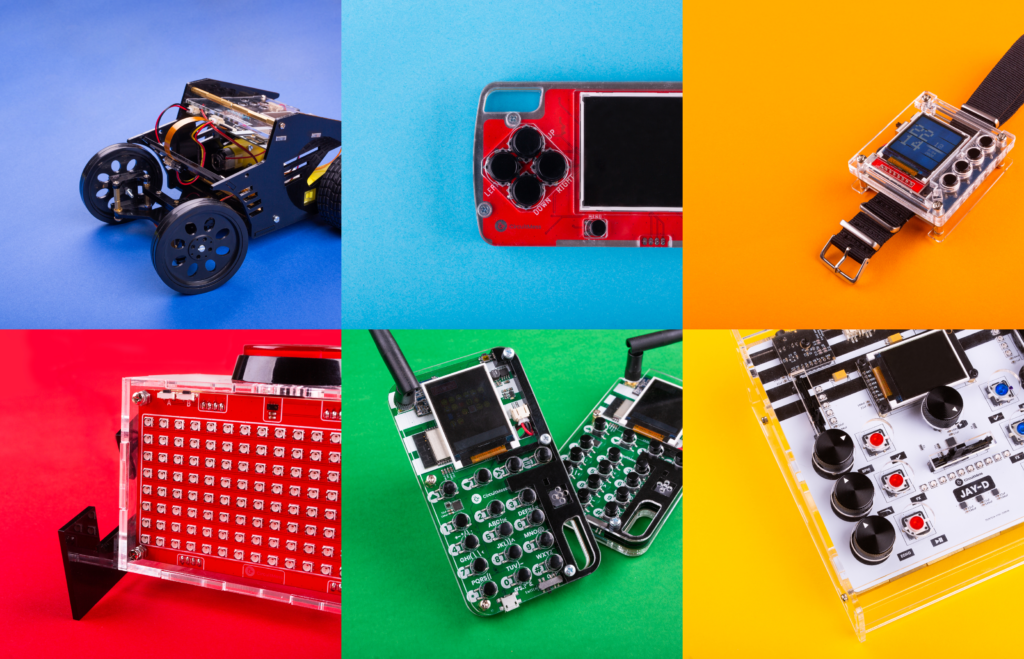
CircuitMess announced the following 6 products that will be a part of the STEM Box:
● Spencer – a codeable DIY voice assistant similar to Amazon Alexa that will show you the technology behind speech recognition and AI
● Jay-D – a DJ Mixtable that will teach you how sound synthesis works
● Wheelson – a DIY robot car that will show you how autonomous vehicles work
● ByteBoi – a build-it-yourself game console that will explain what video game engineering is and how microcomputers work
● Chatter – CircuitMess’s unique communication devices that will teach you about wireless communication
● Clockstar – a machine-learning -powered smartwatch
STEM Box’s Kickstarter campaign is launching on Monday, June 29th 2020 with a goal of 15.000,00 USD The estimated delivery date for the first STEM Box is November 2020. (Just in time for Christmas!)
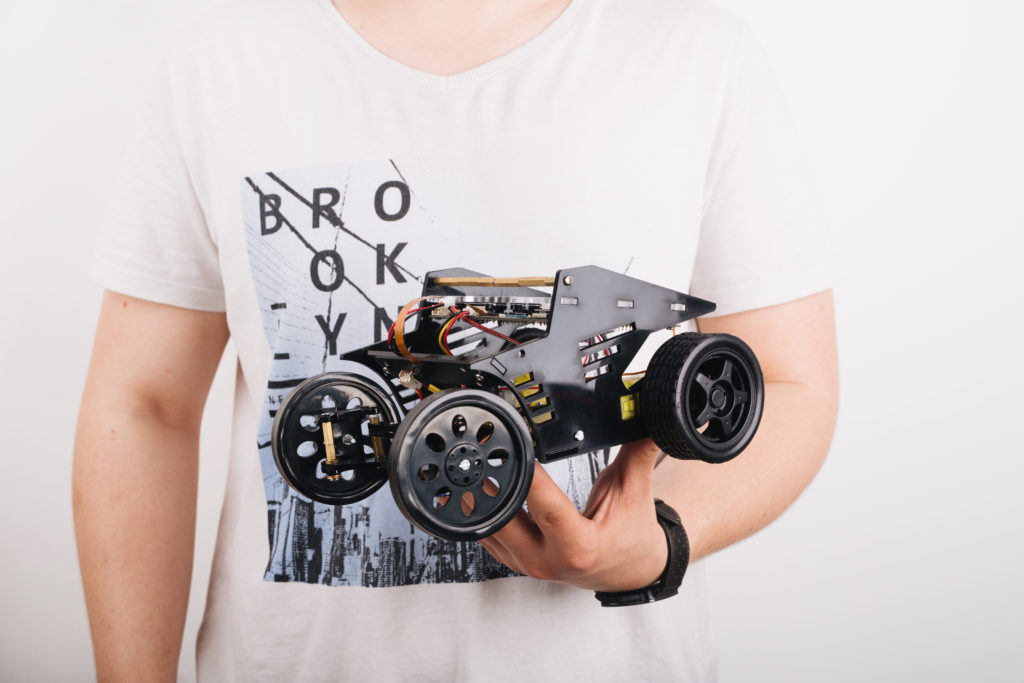
Third Kickstarter project for a Croatian ed-tech startup
This is CircuitMess’s third crowdfunding campaign, following two very successful ones.
CircuitMess started with a Kickstarter campaign for MAKERbuino – a DIY game console. The first campaign raised more than $100,000, followed by a Kickstarter for MAKERphone – a DIY mobile phone that raised more than $300,000 in 2018.
Since then, CircuitMess has delivered more than 15,000 devices to customers all around the globe.
“We’ve figured out that our customers really like our work and want to learn even more. That’s why we decided to create the STEM Box. I am really proud of our Trustpilot page where we invite all of our customers to post honest and unfiltered reviews”, says Albert Gajšak, the CEO of CircuitMess.
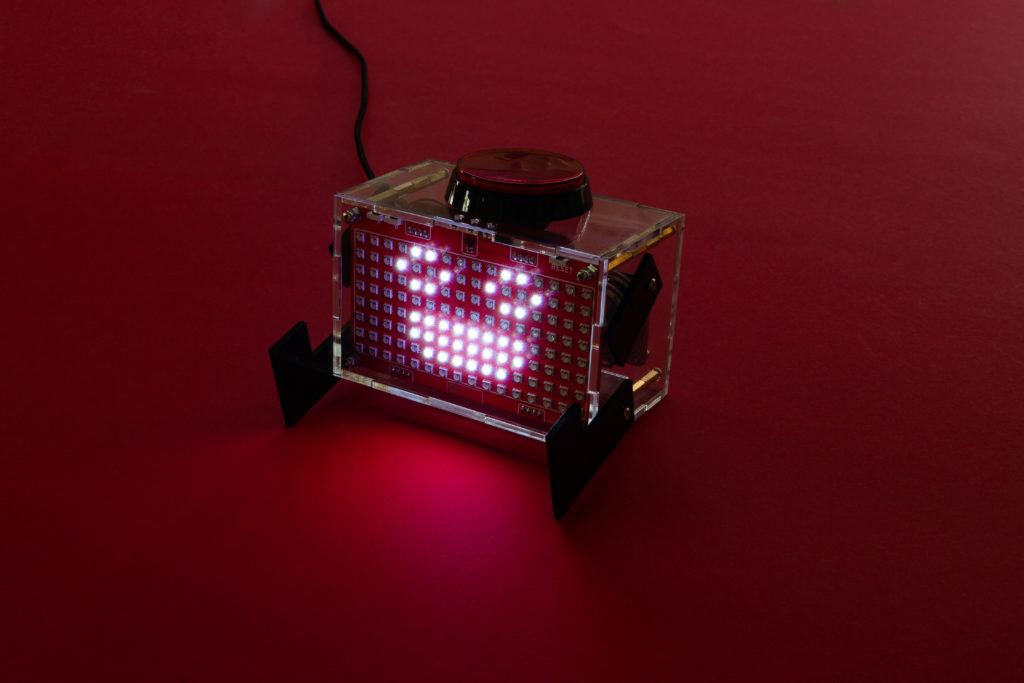
About CircuitMess
CircuitMess is a technology startup founded in Karlovac, Croatia in 2017 by Albert Gajšak and Tomislav Car after a successful Kickstarter campaign for MAKERbuino.
Currently, CircuitMess is employing 15 young ambitious people and have recently moved to a new office in Croatia’s capital, Zagreb, in search for more smart people that will help them create new electronic products and bring technology to the crowd in a fun and interesting way.
KinderLab Robotics Announces KIBO Resources and Curriculum to Support Blended and Distance Learning for Early Childhood
WALTHAM, MASS. (PRWEB) JUNE 02, 2020
KinderLab Robotics today announced the availability of resources and curriculum to support blended and distance learning using KIBO, the hands-on, screen-free STEAM robotics kit. Even during school closures in the face of the COVID-19 pandemic, schools can use KIBO to support age-appropriate STEAM learning and family engagement.
KinderLab’s new curriculum bundle enables teachers to incorporate KIBO into a distance- or blended-learning model for creative STEAM education both at home and at school. The bundle is supported by professional development that explains how to teach remotely with KIBO, as well as how to support parents using KIBO at home.
Jason Innes, the manager of training and curriculum development at KinderLab Robotics, Inc., said, “As we respond to changes to the structure of school, we need to hold onto what we know works in early childhood education. Hands-on manipulatives, playful learning, and student collaboration all remain vitally important. By providing students with access to KIBO during school closures and remote learning, schools can teach in a developmentally appropriate way while promoting connection between students, parents, peers, and schools. KIBO, along with curriculum and professional development from KinderLab, is a powerful foundation for early childhood remote learning.”
KinderLab has created a range of resources to help schools and districts incorporate the benefits of hands-on, screen-free robotics and respond to the uncertainty of how school will look in the fall. These include:
- A new whitepaper called Connecting with KIBO, which outlines the benefits of providing access to robotics for young children and models for how to teach screen-free computer science and coding despite school closures. The whitepaper includes sample lessons and suggestions for using KIBO regardless of the setting: remote learning by videoconference, blended learning in reduced-occupancy classrooms, and parent-facilitated learning at home.
- A webinar on June 3rd called How Can I Use KIBO in Blended or Distance Learning? Attendees will hear from two leading STEM educators from Boston Public Schools and The Agnes Irwin School on their practical suggestions and concrete advice for incorporating KIBO into a distance- or blended-learning model.
- For schools considering implementation of a home-based KIBO rotation program, KinderLab has created a convenient package of curriculum and professional development. The KIBO Blended Learning Curriculum Bundle, priced at $499, supports five KIBOs when rotating between students. This collection of teaching materials supports teacher-led, child-directed, and parent-supported playful learning. One hour of live video training is included, giving teachers the preparation they need to implement this model.
In early childhood, engagement with physical materials remains essential. With the school closures caused by COVID-19, teachers and parents around the country have seen that long videoconferences or purely screen-based lessons are not developmentally appropriate for young children. KIBO is a robot kit specifically designed for early childhood, so children program their robots with “tangible code” made of wooden blocks. Because KIBO is entirely screen-free, they engage in learning STEAM concepts through physical play and creative self-expression.
A distance learning program with KIBO can also be based on recorded lessons and demonstrations by the teacher, with children engaging in movement activities and unplugged coding games. KIBO’s standards-aligned curriculum can be adapted to work while students are at home using video lessons prerecorded by teachers, interactive videoconferences with teachers and peers, and parent-supervised home projects. Some lessons can be done without the physical robot, but the richest learning comes from hands-on engagement with KIBO, using robot kits made available for use at home. Supported by their parents and caregivers, children can play, imagine, and create, then share their creations with their peers to maintain engagement and connection.
“Many students lack reliable access to internet or computing resources at home,” Innes concluded. “Providing these families with access to KIBO is an important move toward equity in learning across our community. We think of KIBO as ‘1:1 for Pre-K–2,’ putting age-appropriate learning technology into students’ hands to be used with teacher support and parent engagement. By encouraging parents to take on the role of co-learner, we help address parents’ anxiety as well as promote deeper bonds—between parents and students, and between parents and schools.”
About KIBO – The Playful STEAM Robot
KIBO is a hands-on, playful robot kit that allows young children aged 4–7 to build, program, decorate, and bring their own robot to life without requiring a smartphone, tablet, or computer. It is an open platform on which students can envision and create their own robot. With art and engineering, students transform KIBO into imagined animals, vehicles, storybook characters, and more. Students plan a coding sequence using wooden programming blocks, then scan their sequence with the built-in barcode scanner, press its button—and the robot comes alive.
When children build, code, and decorate their own robot, they perceive it as play, but they are learning invaluable STEAM skills. Not only are these hands-on experiences inherently rewarding, but they help children understand the technology in their world and can even improve their future job prospects.
About KinderLab Robotics
KinderLab Robotics is the creator of the award-winning KIBO, a playful educational STEAM robot kit based on 20 years of child development research with thousands of children, teachers, and parents. Developed specifically for teachers by Dr. Marina Umaschi Bers at Tufts University, KIBO is currently used in 60+ countries and has proven efficacy in helping kids learn STEAM—and getting them excited about it! KinderLab offers a complete suite of teaching materials that help integrate STEAM elements into a wide range of curricula, including art, cultural studies, and reading literacy.
For more information, please visit KinderLabRobotics.com.
CoderZ Introduces CoderZ Adventure Course for Elementary Students
DERRY, N.H. (PRWEB) MAY 05, 2020
CoderZ has launched CoderZ Adventure, a new coding and robotics course for elementary school students in grades two through five. The course contains activities and assignments, including more than 50 gamified “missions” with easy-to-follow walkthroughs and tips. It is designed to empower even teachers who are coding novices so that they can include a more comprehensive STEM foundation in their students’ early knowledge base.

CoderZ Adventure introduces students to the world of STEM and robotics through an exciting journey of adventures in the CoderZ world. Students will learn how to program their virtual robot to navigate in CoderZ Frozen Island, the Lost City, Candy Town and other stimulating locations while practicing basic math, geometry and more. Students work their way through seven adventures covering multiple topics:
1. Adventure Peak introduces basic navigation such as driving and turning using Drive and Turn blocks.
2. Frozen Island practices basic arithmetic practice: addition, subtraction and division.
3. The Lost City covers how to use the program’s Explore Mode feature to measure distances, the Wait block and Repeat Loops
4. Crystal Crater covers basic geometry exercises: angles and parallel lines. Students also practice Repeat Loops.
5. Candy Town delves into more geometry: the concept of the radius of a circle. Students also continue practicing Repeat Loops.
6. Sketch It is a practice exercise during which students draw on a virtual sketchpad using all the skills learned previously.
7. The Milky Way uses the Explore Mode feature to measure angles and radii. Students plan the optimal route to complete a mission as quickly and efficiently as possible, given a time limit.
Each session contains a series of related missions that enable students to learn to code with the virtual robot, apply their math skills and practice problem solving.
CoderZ Adventure is already proving popular with teachers and their students. One of the program’s fans is Christy Gonzales who teaches a robotics class at Pinecrest Glades Academy in Florida. “They’re loving the game!” she said. She challenges each student to try to find the solution first. “I incentivize them to resolve the challenge as efficiently as possible,” she explained. “Kids LOVE a race.”
“It’s great to see the CoderZ Team bookend the well-known middle school Cyber Robotics 101 and 102 packages expanding to a complete pedagogical solution with CoderZ Adventure as an incredible elementary school solution and text-based Python Gym for secondary school students,” said Trevor Pope, CoderZ Success Manager at CoderZ. “Programming virtual robots with CoderZ has an educational, engaging, competitive, fun and positive impact for all students in grades 2-12.”
For more information on CoderZ Adventure, visit https://gocoderz.com/coderz-adventure/.
About CoderZ
CoderZ is an innovative and engaging online learning environment. Developed for students in grades 2 and above, the gamified STEM solution allows student to work at their own pace, easily programming real and virtual robots from anywhere in the world. The platform enables students to acquire computational thinking, problem solving and creativity skills, together with coding and STEM learning, all via a flexible and scalable virtual solution. For more information go to http://www.gocoderz.com.
Festo and MassRobotics to Create Innovations in Robotics and Automation Through New Partnership
STUTTGART, GERMANY (PRWEB) APRIL 23, 2020
Festo has entered into a strategic partnership with MassRobotics, based in Boston, to further global market growth and innovation initiatives dedicated to the development of the next generation of robotics.
MassRobotics, the independent, nonprofit group serving as an innovation hub for robotics and smart connected devices, works to foster a collaborative space in which to inspire the next generation of robotics and automation innovators and builders. The organization’s unique “escalator” model allows startups to establish, grow, offer meaningful employment, and provide ongoing value for MassRobotics’ partner organizations.
MassRobotics also creates a supportive learning environment to engage youth and next generation engineers and entrepreneurs by offering Science, Technology, Engineering and Mathematics (STEM) workshops, competitions, and technical internships. MassRobotics supports the Ventilator Project, founded by entrepreneurs located at MassRobotics. The Ventilator Project aims to solve the ventilator shortage crisis with an innovative low-cost ventilator designed by members; the team is currently seeking FDA approval for the device.
“We are pleased to announce our partnership with MassRobotics,” said Alfons Riek, Vice President Technology and Innovation, Festo. “Combining Festo’s in-depth know-how in manufacturing applications and automation technology with the MassRobotics community will enable Festo to engage with robotics and automation startups. We will collaborate with entrepreneurs and academia alike in bringing innovative new automation and robotic concepts and solutions to market.”
“The Boston area with its high density of robotic expertise is very interesting for us, and we expect many interesting opportunities for our robot development throughout the partnership with MassRobotics,” said Christian Tarragona, Vice President Festo Robotics.
Carlos Miranda, CEO, Festo North America, added, “Festo and other MassRobotics members will explore the evolution of automated manufacturing solutions to autonomous ones. Through technology challenge engagements, members will co-develop and commercialize advanced products and systems.”
Festo is one of the world’s leading automation companies, and, in addition to technology, the company offers automation learning systems through its Didactic Division. It promotes public and private alliances that implement apprenticeship programs. Festo invests heavily in research and development. The Bionic Learning Network, for example, creates novel solutions based on designs found in nature. The network emphasizes Festo partnerships with academia and technology businesses.
“MassRobotics and Festo share a vision of developing the future of robotic solutions dedicated to the emerging needs of the manufacturing sector,” said Fady Saad, Cofounder and Vice President of Strategic Partnerships, MassRobotics. “Having an automation company with the expertise, resources, and leading-edge development capabilities of Festo will further the mission of MassRobotics and create excitement about our collaborative efforts.”
###
About Festo
Festo is a leading manufacturer of pneumatic and electromechanical systems, components, and controls for process and industrial automation. For more than 40 years, Festo Corporation has continuously elevated the state of manufacturing with innovations and optimized motion control solutions that deliver higher performing, more profitable automated manufacturing and processing equipment. Connect with Festo: Facebook, LinkedIn, Twitter and YouTube
About MassRobotics
MassRobotics is the collective work of a group of Boston-area engineers, rocket scientists and entrepreneurs. With a shared vision to create an innovation hub and startup cluster focused on the needs of the robotics community, MassRobotics was born. MassRobotics’ mission is to help create and scale the next generation of successful robotics and connected device companies by providing entrepreneurs and innovative robotics/automation startups with the workspace and resources they need to develop, prototype, test and commercialize their products and solutions. http://www.massrobotics.org
